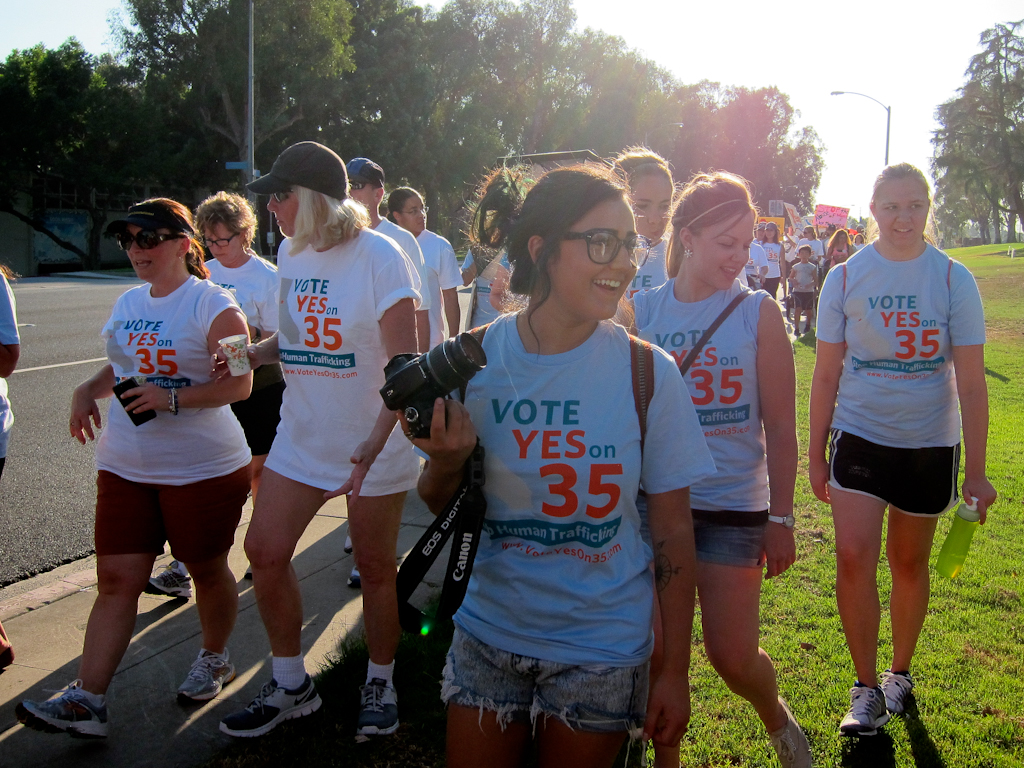
Whether seeking justice for women affected by human trafficking or ministering to juvenile offenders, leaders and members of the Social Justice Ministry say that reflecting God's heart for justice and mercy is their true passion.
Biblically-centered vision
Former director of Social Justice Ministry and current senior Amanda Andrews points to Micah 6:8 — “to act justly and to love mercy” — as the source of the ministry’s passion. Andrews compared the ostensibly opposing ideas of justice and mercy to the contrasting purposes of the Social Justice Ministry’s two branches. Whereas the human trafficking branch fights and advocates for victims of injustice, the prison ministry will often serve those people who were the perpetrators.
“It is really easy in the [human trafficking branch] to begin to hate the perpetrators,” Andrews said. “So we try to reflect that part of God that he does care about victims, his heart breaks for them, but he also died for prisoners on the cross.”
Both branches of the Social Justice Ministry take several routes to implement their mission to represent and serve the marginalized and disenfranchised in society, particularly in the urban areas surrounding Biola.
Human trafficking branch brings justice and awareness
The human trafficking branch, headed by sophomore Katie Nelson and senior Michelle Van Camp, focuses on seeking justice and solutions for sex workers and people involved in modern day slavery throughout the United States — specifically in cities such as Compton and Anaheim, trafficking hot spots right in Biola’s backyard. Much of their work involves raising awareness of tough and controversial issues in the campus community — such as screening the film “Nefarious,” a documentary on sex trafficking around the world.
“We have a pretty solid policy of not skirting the truth, of not dumbing things down or dressing things up to make them nicer than they are,” stated Nelson, who is also assistant news editor at the Chimes. “Being honest, being open, and saying that this is the reality: We live in a very dark world, but we also have the opportunity to bring light into it.”
Partnering with outside organizations
But the work doesn’t just stop at campus and community awareness events. On Sept. 15, several members of the Social Justice Ministry travelled to Long Beach to participate in the CASE Act Walkathon to support Proposition 35, which would apply more pressure and penalties to pimps and others who traffic people in California.
The human trafficking branch of the ministry regularly partners with other organizations, such as the Dream Center in Los Angeles, which houses women who are transitioning out of prostitution and sex trafficking. They also partner with Faith Inspirational Missionary Baptist Church in Compton, which focuses on directly bringing women off the streets to safe havens. Social Justice Ministry members write letters of hope to the women and send them with care packages to both the Dream Center and Compton. Nelson hopes to send a team of students into the Dream Center in the future.
Prison branch cares for children of the incarcerated
While the human trafficking branch of the Social Justice Ministry is continually seeking justice for the hurting in the streets, the prison branch brings comfort and mercy to the hopeless in prisons, focusing mainly on juveniles and children whose parents are incarcerated.
Every other Friday night, prison ministry takes students to Operation Safe House in Riverside, where kids in crisis or transitioning out of the juvenile hall system have a safe place to stay. In a joint effort with the human trafficking branch, the prison ministry also ministers at Solidarity, a juvenile immigration detention center in Fullerton where the kids have been orphaned, abandoned or were trafficked into the United States from other countries. Members organize game nights for the kids, share the gospel and simply try to show God’s love. The prison ministry also volunteers with Get on the Bus, an organization that buses children to prisons in order to reunite them with their parents on Mother’s and Father’s Day.
“Run for Micah 6:8” approaches
Working through a new partnership with Prison Fellowship, a national organization that seeks to transform the lives of prisoners and their families through the gospel, the prison ministry also facilitates projects such as Angel Tree at Christmas. Prison Fellowship is also partnering with the Social Justice Ministry to support Biola’s “Run for Micah 6:8” on Oct. 6 during Biola Weekend.
“[Prison Fellowship] is marketing it and coordinating the event without any money going to their ministry or their work; it is entirely to benefit our student-run ministry,” said Andrews, who is also the event coordinator for the run. “They are totally serving us that way.”
Social justice as a lifestyle
With more than 100 sign-ups at the first meeting, current Social Justice Ministry director and senior Victoria Stasiak has great hopes for the impact the ministry will have on the Biola campus this year. According to Stasiak, the Social Justice Ministry seeks to impress upon the Biola community God’s deep concern and heart for social justice as well as the need for Christians to pursue social justice in every area of their lives.
“Social justice is not a Christian cliché or an idiom to be carelessly used in our culture,” Stasiak said. “It’s not just a ministry to be involved in, it’s something that should be at the forefront of our minds as we go out into the world.”







